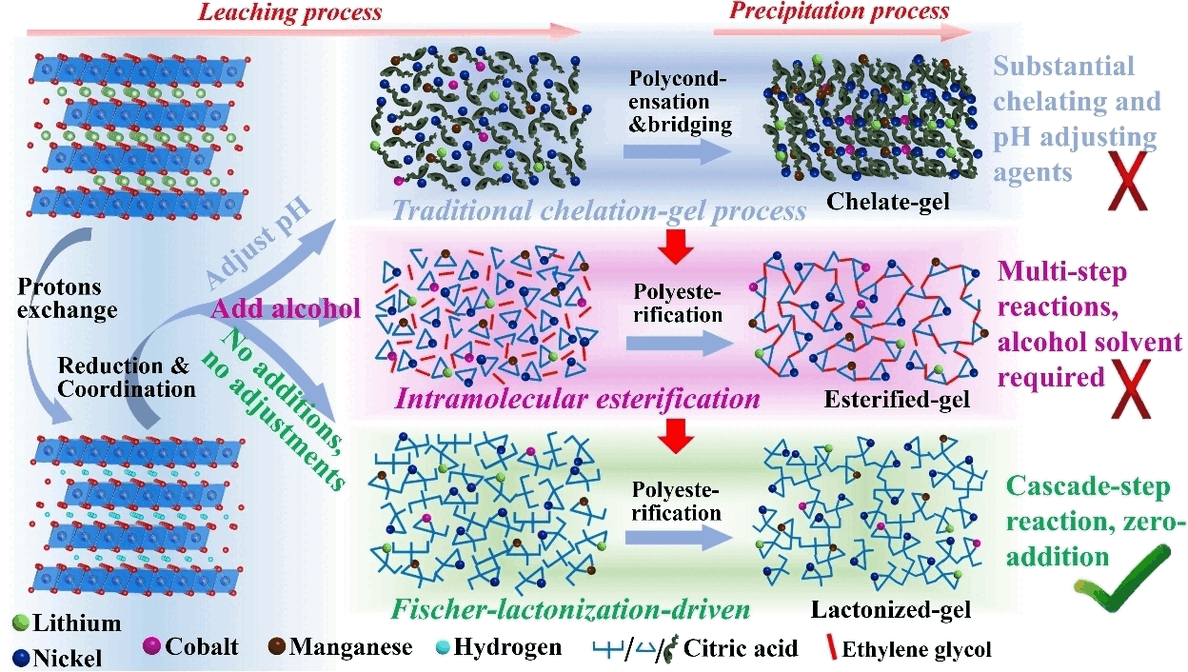Press Release
Angewandte Chemie International Edition
doi.org/10.1002/anie.202414484
Nr. 19/2024
November 15, 2024
Recycling Batteries with Citric Acid
Highly efficient recycling process for NCM lithium-ion batteries

© Wiley-VCH, re-use with credit to 'Angewandte Chemie' and a link to the original article.
A simple, highly efficient, inexpensive, and environmentally friendly process could provide a viable pathway for the sustainable recycling of depleted lithium-ion batteries (LIBs): No chemicals beyond citric acid need to be added to leach out and separate over 99 % of the lithium, nickel, cobalt, and manganese metals contained in NCM batteries. The resulting recycled material can be directly converted into NCM electrodes, reports a research team in the journal
Angewandte Chemie.
From smartphones to electric vehicles, lithium-ion batteries are everywhere in our daily lives. They are also an important component of our transition to renewable energy, as they are used to store excess solar and wind energy and send it back into the power grid on demand. The downside is that their limited lifespan results in vast numbers of spent LIBs that contain dangerous heavy metals and other hazardous materials. In addition, metal resources are being depleted.
Most recycling processes suffer from high energy usage, high emissions, and limited or low-quality recovered material. Or they require very large amounts of chemicals, are complicated and expensive, and produce toxic gases and run-off. Leaching with biocompatible acids like citric acid is one alternative to these processes. However, conventional processes (chelation-gel process) require a significant excess of the acid, and the pH value must constantly be adjusted with ammonia—complicated and not very environmentally friendly.
A team at China University of Mining and Technology (Beijing), Fuzhou University, Beijing University of Chemical Technology, and Tsinghua University, Shenzhen (China) led by Guangmin Zhou and Ruiping Liu has now developed a novel citric-acid-based method for the leeching, separation, and reclamation of metals from NCM cathodes. NCM is a mixed oxide containing nickel, cobalt, and manganese in a lamellar structure. Lithium ions are enclosed between the layers.
…
